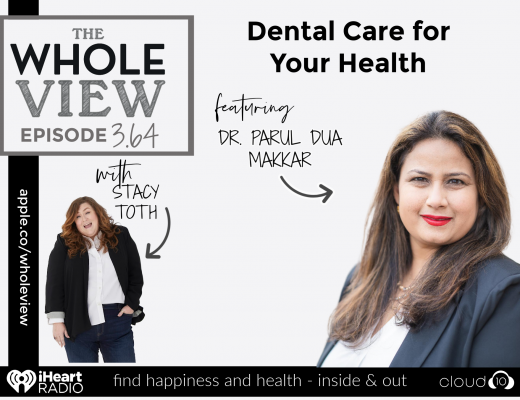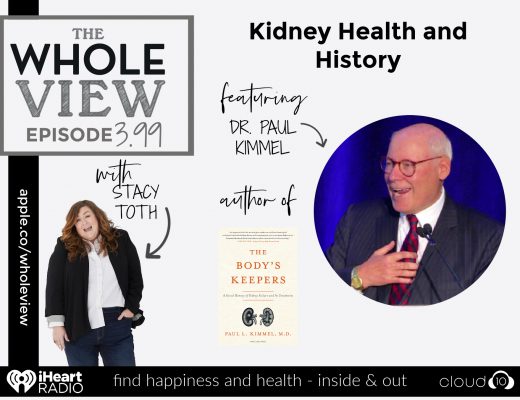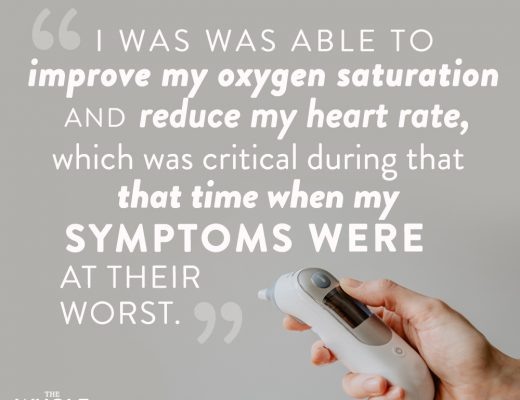On this special update episode of The Whole View, Stacy talks about why she quit caffeine and how it helped improve her health and reduce symptoms of Long Covid. We revisit part of Episode 379, “Let’s Talk About Coffee,” where Stacy and former co-host Dr. Sarah Ballantyne discuss the popular beverage and break down the research from that time. Sarah talks about the relationship between science and the media and walks us through the health benefits of coffee, as well as the caveats.
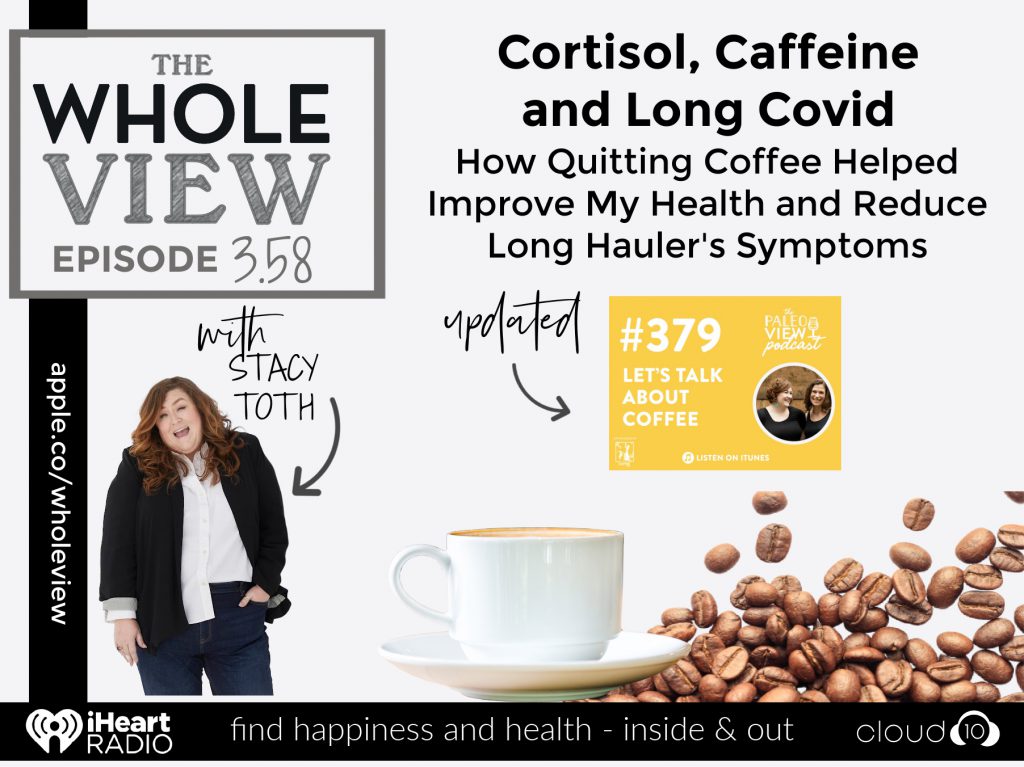
If you enjoy the show, please leave a review. Letting people know on iTunes or however you listen that it’s worth their time could change someone’s life!
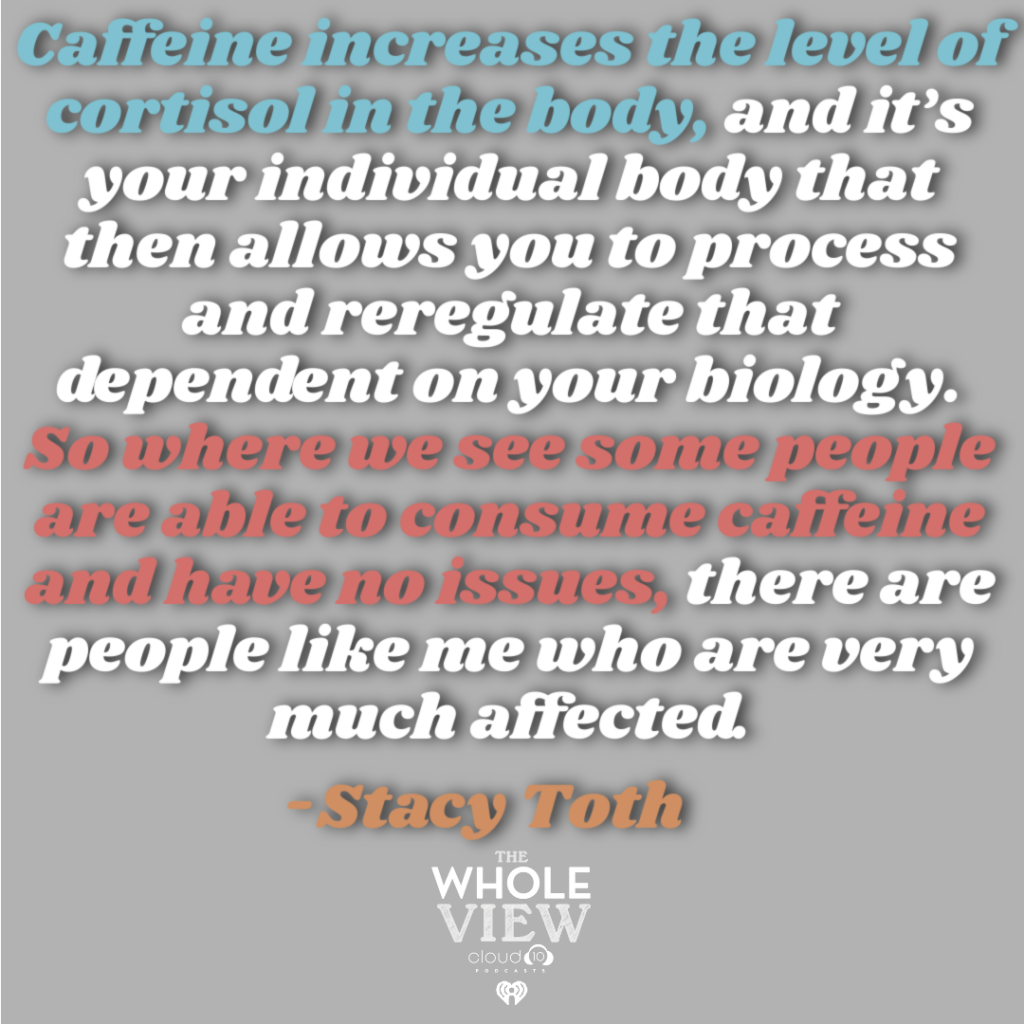
To listen to a full replay of Episode 379 below and read all of the studies and references from that episode here!
Key Takeaways
Why an Update
- We didn’t touch on cortisol and anxiety when talking about coffee in our original Episode 379 related to coffee. The clip from Episode 379 contains the other science originally discussed by Sarah Ballantyne, PhD.
- Ultimately what drove Stacy to the change was the health tweaks she was making associated with the symptoms Long Hauler’s. She wanted to alleviate the stress on her immune system.
- Caffeine elevates cortisol secretion [source]: Cortisol, the primary stress hormone, increases sugars (glucose) in the bloodstream, enhances your brain’s use of glucose and increases the availability of substances that repair tissues. Cortisol also curbs functions that would be nonessential or harmful in a fight-or-flight situation. It is a steroid hormone that regulates a wide range of vital processes throughout the body, including metabolism and the immune response.
- Stacy saw the best results in testing cortisol levels to rule out other concerns like adrenal issues, thyroid, etc.
- A meta-analysis from 2022 [source] showed caffeine increases anxiety and can bring on panic attacks:
- 51% of of patients experienced a panic attack following caffeine, but none (not a single patient) after placebo.
- Six studies showed that when compared to a healthy controls, patients were more vulnerable for panic attacks following caffeine by 53.9%
- One study showed an increase in anxiety in 92% of patience following caffeine
Next Steps
- You may want to consider quitting caffiene if you’re suffering from fatigue, insomnia, sleep issues, cravings, mood swings, or anxiety. Also try not giving in to crutches right away like decaf or lower-caffeine tea. Instead, Stacy’s suggestion is to take a nap if you have cravings! Ssleep is the only way to get over the slump to normalized energy on the other side.
- After a few months, Stacy was able to reintroduce minute amounts of caffeine in decaf or tea 1-2x/week, always with food. While her singular goal was to simply quit coffee, she ended up drinking more water, getting better sleep, and eating more fruits & veggies.
Studies, References & Products
- Effects of caffeine on anxiety and panic attacks in patients with panic disorder: A systematic review and meta-analysis, General Hospital Psychiatry
- Caffeine stimulation of cortisol secretion across the waking hours in relation to caffeine intake levels, Psychosomatic Medicine
- Cortisol responses to mental stress, exercise, and meals following caffeine intake in men and women, Pharmacology Biochemistry and Behavior
- Realeverything.com: I Quit Cofee and Other Things I Did to Fix My High Cortisol Levels
- The Paleo View Podcast: Ep 379, Let’s Talk About Coffee
Sponsors
- TakeCareOf.com | Use code WHOLEVIEW50 for 50% off your first order
- EarthBreeze.com/wholeview | Get 40% off sitewide
- iHerb.com | Use code WHOLEVIEW for 22% off your first order
- Vegamour.com/wholeview | Use code WHOLEVIEW for 20% off your first order

